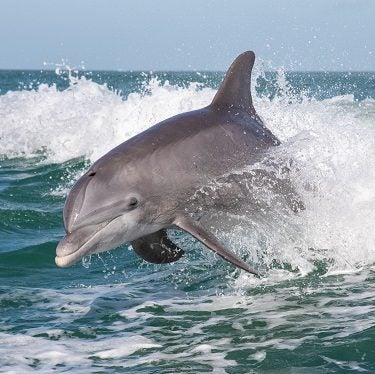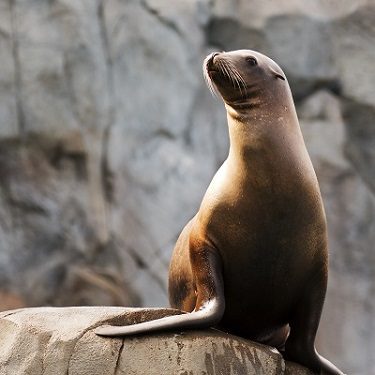Marine Life Encyclopedia
Ocean Fishes
Skipjack Tuna
Katsuwonus Pelamis
Distribution
Worldwide in tropical to warm temperate latitudes
eCOSYSTEM/HABITAT
Open ocean (pelagic)
FEEDING HABITS
Active predator
TAXONOMY
Order Scombriformes (mackerels and relatives), Family Scombridae (mackerels)
The skipjack tuna is a common species in the open ocean that forms very large schools, often around floating objects. A single floating log or slowly moving adult whale shark may have tens of thousands of skipjack around it. There are several hypotheses as to why this phenomenon occurs, but scientists generally agree that skipjack use these objects – in the otherwise homogenous open ocean – as meeting places, in order to merge schools or locate sufficient numbers to hunt or reproduce. Skipjack eat a variety of prey, including small fishes, squids, pelagic crustaceans, and other small invertebrates. They do not have the ability to suction feed and instead must rely on their fast swimming speeds to overcome and bite prey. They are also unable to pump water across their gills, so they must constantly swim forward in order to retrieve sufficient oxygen from the water. Skipjack tuna are an important prey species for open ocean sharks and large bony fishes, especially the billfishes, and play an important intermediate role in pelagic food webs.
Skipjack reproduce through a behavior known as broadcast spawning, where several females release eggs and several males release sperm into the water column, all at the same time. This method increases the likelihood that eggs will become successfully fertilized and that fertilized eggs will not be eaten by egg predators.
The skipjack tuna is the most heavily fished tuna and accounts for at least 60% of the legally caught tuna landed worldwide. This species lives in tropical latitudes of all oceans and is fished commercially everywhere that it is found. Fortunately, it is fast-growing, reproduces at a young age, and produces millions of eggs, and scientists believe the fisheries that target it to be relatively well managed. Therefore, the skipjack tuna is generally considered a species of least concern. It is not at current risk of going extinct. Unfortunately, however, there are environmental concerns with the fishing practices used to target this species. Noting the skipjack’s tendency to school around floating objects, many fishers have started designing and deploying fish aggregating devices (FADs) – manmade objects that attract skipjack and other species in the open ocean. These devices are now technologically advanced enough to measure the amount of tuna schooling below them and transmit that number, along with the FAD’s location, directly to nearby fishing boats. The accidental catch of other species (including sharks, sea turtles, and other tunas) and of juvenile fishes is a harmful side effect of an otherwise well-managed fishery. Without strict regulation of the way these FADs are used, other species that are at risk of endangerment or extinction could be threatened further.
Engage Youth with Sailors for the Sea
Oceana joined forces with Sailors for the Sea, an ocean conservation organization dedicated to educating and engaging the world’s boating community. Sailors for the Sea developed the KELP (Kids Environmental Lesson Plans) program to create the next generation of ocean stewards. Click here or below to download hands-on marine science activities for kids.
Additional Resources:
Get Involved

Donate Today
SUPPORT OUR WORK TO PROTECT THE OCEANS BY GIVING TODAY
With the support of more than 1 million activists like you, we have already protected nearly 4 million square miles of ocean.

TAKE ACTION NOW
Support policy change for the oceans
Decision-makers need to hear from ocean lovers like you. Make your voice heard!

VISIT OUR ADOPTION CENTER
SYMBOLICALLY ADOPT AN ANIMAL TODAY
Visit our online store to see all the ocean animals you can symbolically adopt, either for yourself or as a gift for someone else.

DOWNLOAD OCEAN ACTIVITIES
HELP KIDS DISCOVER OUR BLUE PLANET
Our free KELP (Kids Environmental Lesson Plans) empower children to learn about and protect our oceans!




